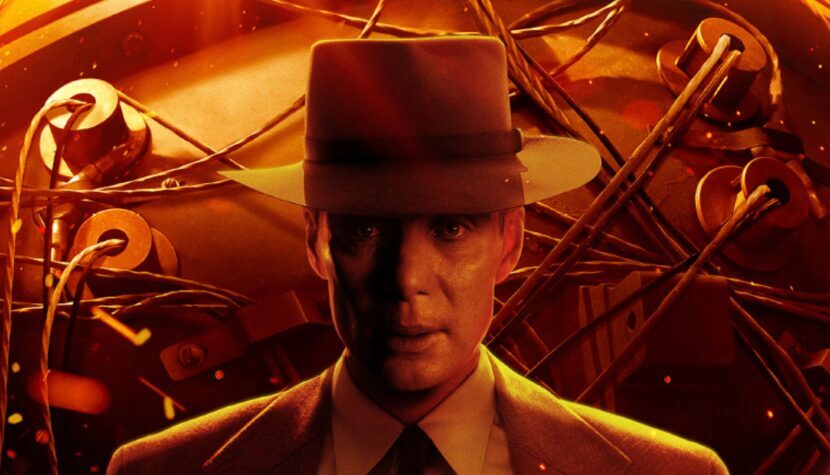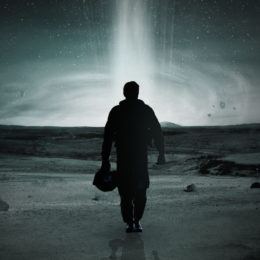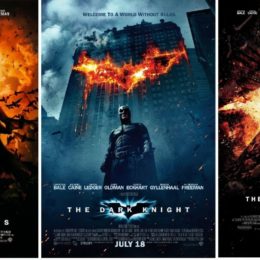OPPENHEIMER. How I Learned to Start Worrying and Hate the Bomb [REVIEW]

Academic career in American and European universities. An affair with a left-wing worldview and membership in university trade unions. Wide acquaintances in the scientific world, high-profile publications and gathering more and more listeners. At the very top, an invitation from General Leslie Groves (Matt Damon) awaits. Robert Oppenheimer (Cillian Murphy) becomes director of the Manhattan nuclear project. The arms race is getting faster and hotter, and it is taking more and more casualties. The American administration never believed that any conflict could be ended by stroking the head. Nazis, Stalin, Soviet Union, Pearl Harbor, Hitler, September 1, 1939, Senator McCarthy’s “witch hunt.” The political context makes itself felt as an echo, it will flash across the headlines, it will be woven into one conversation or another. Historical background matters, but for Christopher Nolan, the narrative axis is Robert Oppenheimer’s personal perception and journey inside him. Expect a journey to the heart of darkness.
If you have a weakness for Nolan’s extended sequences, the preparation for the Trinity test and the detonation of the atomic weapon is another directing and engineering show of the Brit. The symbiosis of precise editing, composition of various frames (expressive close-ups of faces, majestic total plans) and appropriately heavy, pulsating musical arrangement by Ludwig Göransson is a work of art in itself. Another staging wonder for the portfolio, next to the spinning corridor from Inception or docking from Interstellar.
If you still have a fondness for the memories of Leonard Shelby from Memento or Dom Cobb’s dream visions, you will also find elements of this film convention in Oppenheimer. Robert Oppenheimer will achieve stunning success, land on the cover of the Times, but he will soon feel the pain of a torn ethical backbone. Scientific ambitions and solving the mysteries of quantum physics will be put on the altar of the American defense industry. Add to that an emotional upset in his messy marriage to Kitty (Emily Blunt) and a hidden affair with Jean (Florence Pugh). Oppenheimer is at its best in the few moments where Nolan blurs the line between fantasy and truth, when Robert is genuinely overwhelmed. Victorious, but internally broken into pieces.

A huge budget, IMAX image parameters and several decades of biography, and Oppenheimer is an exceptionally small and intimate cinema. Talking heads in offices, confessions before the commission, classes in school rooms fill the vast part of the three-hour film. Robert practically does not leave the screen, the narration is almost in the first person, but the whole shaky psychological portrait of Oppenheimer (from needs, through fears, to ambitions) is built by a star-studded second and third plan. Oppenheimer is not a wordy film, but it makes the dialogue a major attraction. Robert Oppenheimer’s and Kitty’s auditions in the last act have the right genre weight, screenwriting craftsmanship, breath-taking sultry atmosphere, a lot of acting charisma, subtlety and nuances.
Related:
Christopher Nolan reaches for a new film genre and closes large-scale events in claustrophobic spaces. A creative approach, but its one-sidedness, deprives the film of drama and, what is even more important, the necessity of the presented actions. Oppenheimer is a pacifist manifesto and a conscious reflection on 20th-century world history. It is usually expressed too directly (interview with the president) and sometimes with brilliant, playful cynicism (the scene of selecting cities to be bombed in Japan). In Oppenheimer, it is certainly valuable to explore the tragic entanglement of the scientific community with the arms industry that feeds on its achievements. For the first party, even one step is one too many. The second one knows perfectly well that it has the means and the necessary tools to make progress. He knows that when he pays, he demands and doesn’t ask.
Christopher Nolan is fascinated by past times, historical figures, textbook conflicts and technological breakthroughs. However, I prefer when Nolan invents film worlds himself. So I will always choose Inception and Interstellar over Dunkirk and Oppenheimer. For me, he’s still a director of fiction, not fact.



